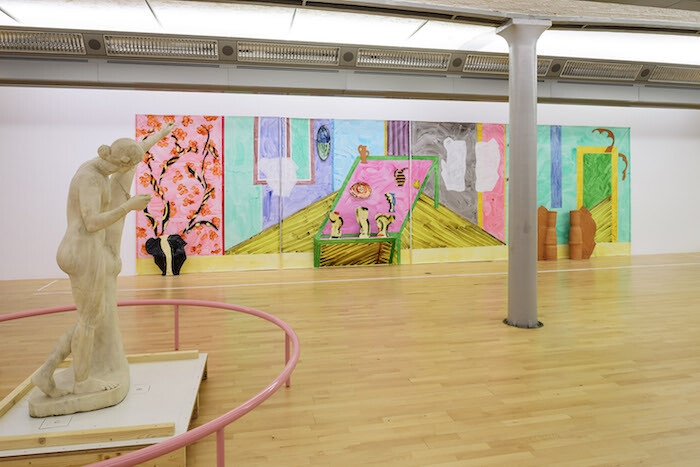Categories
Subjects
Authors
Artists
Venues
Locations
Calendar
Filter
Done
September 15, 2023 – Review
Liverpool Biennial, “uMoya: The Sacred Return of Lost Things”
Novuyo Moyo

Given Liverpool’s role as a major hub for the slave trade during the eighteenth and early nineteenth centuries, it’s surprising that past editions of the city’s biennial have not engaged more directly with this subject. The legacy of slavery haunts the port city: it can be seen in the many warehouses by the docks, the streets named after slave traders, and the monuments addressing it. This year’s biennial dives fully into that history, guided by Cape Town-based curator Khanyisile Mbongwa’s approach, rooted in remembrance but also in the seeking of potential avenues to healing. “uMoya: The Sacred Return of Lost Things” featured over thirty artists finding ways to engage with a city whose links to slavery and its legacies are inextricable, in a way that manages to look to the future as well as the past.
In the Tobacco Warehouse, Albert Ibokwe Khoza’s multimedia installation and performance piece The Black Circus of the Republic of Bantu (2022) goes back to questions of bodily autonomy, mining the histories of human zoos and exhibitions by examining their performance practice. As a South African artist whose work is sometimes staged in the west, they question the relationship between themselves and their audience, …
July 14, 2016 – Review
Liverpool Biennial
Jeremy Millar

Things happen, and then they happen again, but not the same way, not quite; such is the logic of the biennial. And then there are things which have never happened before, and which happen now and in a time that seems somehow out of time, or takes our “now” out with it. This is how it feels to be in Britain, to be visiting this unashamedly international event exactly two weeks after the country—but not Liverpool—voted to leave the European Union. While at the launch event there was much talk of this internationalism, and of confidence in the future, a confidence which the city has not always possessed, there persists a more widely held anxiety at what might occur. If the tide has turned, it has done so quickly, receding at a rate which more usually foretells a tsunami to come.
The Liverpool Biennial has neither a single title nor a theme, but rather six “episodes,” although the same work might appear in more than one episode, and more than one episode might appear in the same venue. It is difficult to see how these can operate as discrete Aristotelian elements, “coming in besides” the story when they constitute the story …